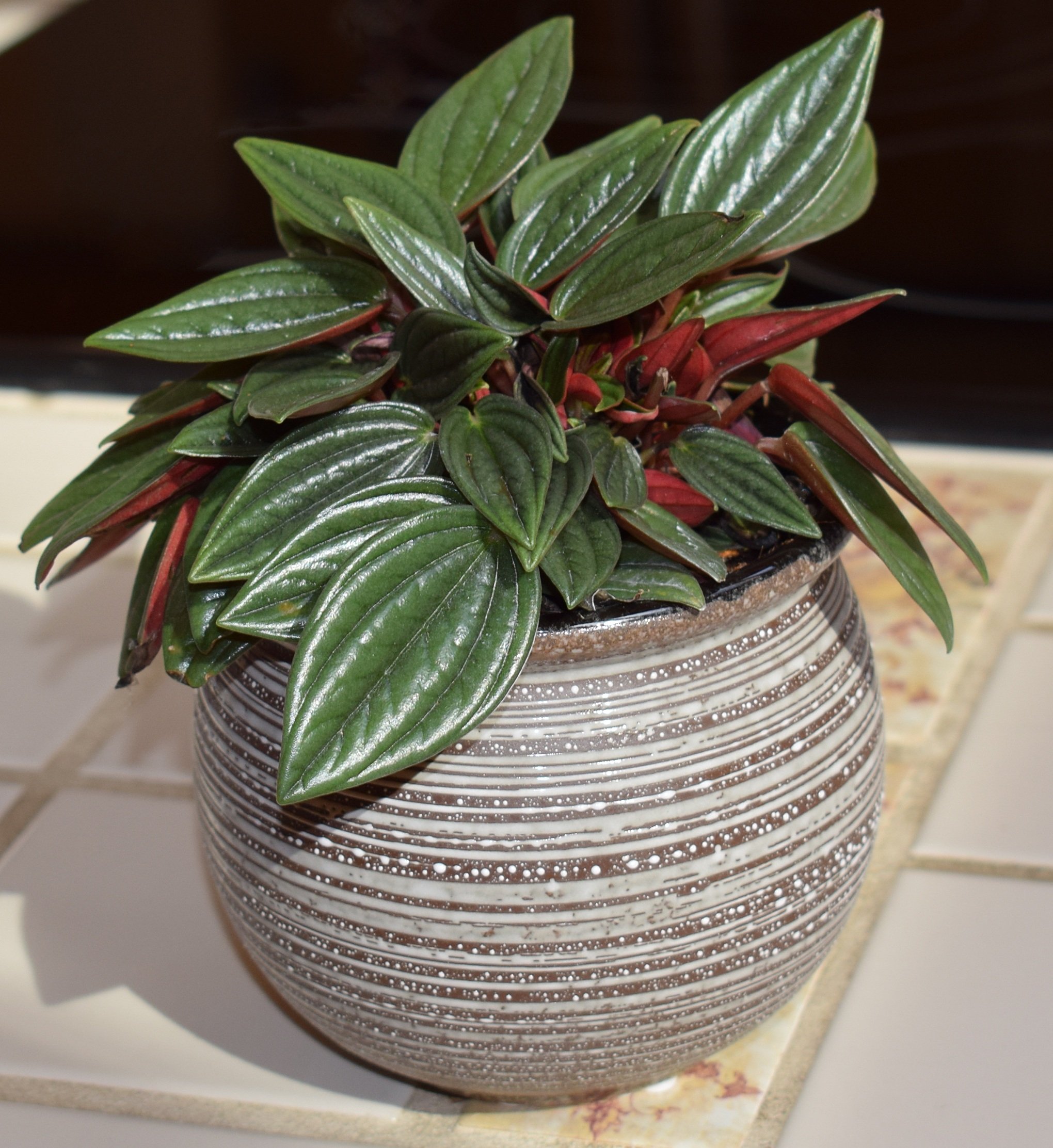Peperomia Care Tips
Peperomia caperata Rosso
Peperomia plants are popular indoor houseplants because they require very little care. Their small size and minimal needs make them ideal for apartments, offices, or anywhere limited space is a concern. They also thrive in locations where temperatures don’t fluctuate frequently, such as in the home or a greenhouse. Peperomia plants are fun to grow and add interest to any home or office. Follow these simple steps for optimal care of your peperomias:
Peperomia plants prefer to be kept in an environment with a humidity of 60 to 70 percent. To maintain this level, you can put a humidity tray near your peperomia, or you can fill a plastic or glass container with water and place the container near the plant. Humidity is essential to the health of a peperomia plant. If your house is too dry or too humid, your peperomia will not thrive.
Peperomia plants like bright light, but they don’t need direct sunlight. Instead, they grow best in indirect light. Peperomias prefer a spot with bright, filtered light. They don’t grow well in direct sunlight and will scorch and burn if given full exposure. Instead, use a grow light or grow tent to provide bright light. A grow light should have a precise spectrum that focuses on the growth of the plant’s leaves. Choose an artificial light that emits mostly blue light, which is most beneficial for the plant. Blue light is the color of energy that a plant uses to grow. Peperomia plants grown in blue light will grow faster and produce healthier flowers.
Peperomias thrive in low fertility conditions, so fertilizer is not necessary for this plant. If you choose to give your peperomia a fertilizer boost, do so only once a month. Avoid using fertilizer that is high in nitrogen as this will promote excessive vegetative growth and encourage leafy and non-flowering blooms.
Peperomia plants don’t need to be watered regularly. Instead, mist the leaves with a spray bottle once or twice a week. Avoid letting the water soak the soil as this will cause root rot. It’s better to mist the leaves to avoid this root rot problem.
Peperomias are easy to care for, and they make excellent houseplants. They can tolerate low light levels and are able to tolerate cooler temperatures. If you are looking to grow a peperomia in your home, take advantage of these tips for optimal care.

